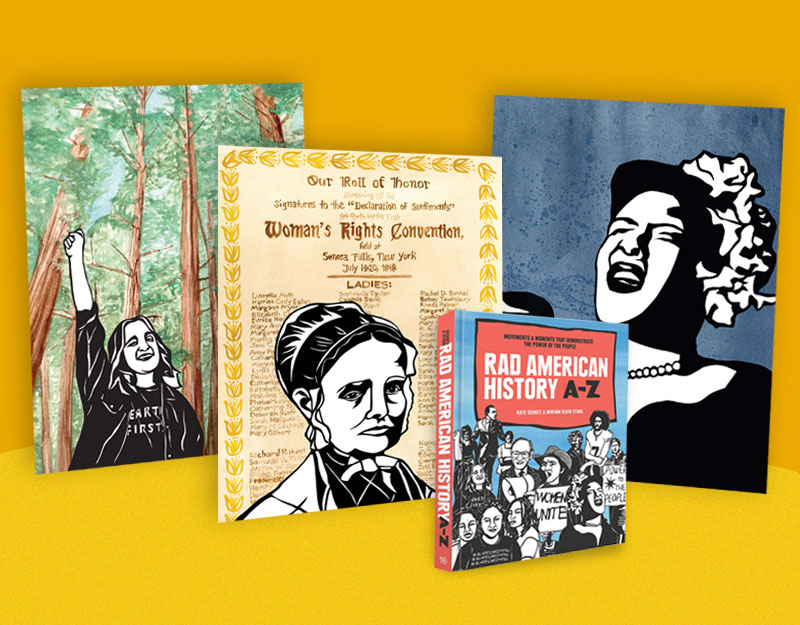Sunday Reflections: That Delicate Balance Between Quality Patron Services and Employee Personal Boundaries
Please note: This post will share a bunch of stories of patron interactions in public libraries and no names or locations will be shared. Some of them are stories from friends, social media, and my own. None of them will reveal that communities in which they occurred to help protect all parties involved.
The man sits at a public computer and when he sees the staff member that usually helps him isn’t around he yells out, “hey, where’s my woman?” You know that she hates how he refers to her as “my woman”, you also know that she is afraid to say anything to him because all it takes is one patron complaint. We live in fear of patron complaints, especially if they get to the board of directors. It’s hard to fully explain a bad patron interaction and in many libraries, the patron almost always wins. And sometimes, you have learned, what one staff member feels is a derogatory statement others feel the staff member should just accept as a compliment. This is part of the tension you see happening in public discussion about sexual harassment at work. Many women want to be able to go to work and not have their looks/sexuality/desirability/etc commented on. They just want to feel safe, supported by administration, and able to successfully do the job they love without being objectified.
ADVERTISEMENT
ADVERTISEMENT
She sits behind the reference desk, swollen, pregnant belly announcing to the world that she is expecting. But what the world doesn’t know is that this pregnancy follows a devastating loss and she is full of anxiety, doesn’t like to talk about her pregnancy with family, let alone strangers. So a man asks, “do you know if you are having a boy or a girl?” And she does, but she doesn’t want to engage. This is not a conversation she should be expected to have with a total stranger, so she tries to deflect and asks, “how can I help you?” Later that day, he calls to complain that she was impolite and wouldn’t engage in normal daily pleasantries.
A staff member walks through the library carrying a donut to their office, found in the staff lounge. Library staff lounges are famous for all kinds of goodies. But a patron sees this staff member with the donut and, noting their body size, comments that they shouldn’t be eating it. They are lectured about food and body and health. If the staff member tries to shut the conversation down or to simply just walk away, they risk a patron complaint.
Another patron walks in and asks if you’ve had your flu vaccine yet. It’s a personal question, what you choose to put into your body, and you never know where the topic of vaccines is going to go. So again, you try to deflect, but the patron is enraged when you try and suggest that this is a personal issue that you would prefer not to discuss. You hear them stop by the circulation on their way out and complain about how rude you are.
Another patron calls you sexy.
Another patron asks you if you are saved.
Another patron asks you if and where you go to church.
Another patron asks you if you have kids.
Another patron tries to talk politics with you.
Another patron wants to know what you think about transgender people using the restrooms.
Another patron asks you how you feel about Black Lives Matter.
Another patron asks you about the border wall.
Another patron asks if you think we should drug test welfare recipients.
Another patrons tells you that they think libraries shouldn’t have LGBTQ materials, that the library shouldn’t support the “gay agenda”, and that gay people are sinners who should be shot so they can just go ahead and go straight to hell because that’s where their headed anyway. They then ask you what you about “the gays”.
And each time the questions are asked, staff are faced with hard decisions. In some libraries, there are clear policies in place forbidding talking about personal politics or religion. But those policies won’t stop angry patrons, patron complaints, or the call into your manager’s office where you are forced to defend your right to help the public without making every moment of your interior life public; your right to have personal boundaries.
In many libraries, we become familiar with our patrons. For many patrons, they come almost daily to escape boredom and loneliness, just trying to find a friendly staff member to talk to. But this need is one of the trickiest parts of the library profession to balance. Sometimes, patrons reveal too much about their own personal lives, try to monopolize staff time and take them away from other patrons. Other times, they ask invasive questions and make judgmental statements. Working with the public is emotionally hard, fraught with not often discussed mine fields, and the customer is always right mentality that has permeated our society makes it difficult and terrifying to know when and how to draw and clearly articulate those personal boundaries.
The Important Emotional Labor of Librarians
There are certain entitlements that exist in our world. Men feel they are entitled to women’s minds and bodies in ways that they shouldn’t. Patrons feel that they are entitled to library staff in ways that they shouldn’t. Good customer service in public libraries shouldn’t and can’t involve asking staff engage in discussions about their personal lives or to accept inappropriate comments or conversations from the general public. But anyone who works in public libraries knows that this is tricky. Patrons have expectations in libraries that they don’t have in any other businesses. For example, patrons would never tell someone to call them at the bank, but they will tell someone to call them at the public library on the public library phone line. Because of the type of organization that a library is, it can be difficult for patrons to understand that there are still policies and procedures in place that everyone should be expected to follow. These policies and procedures should include protecting employees just as much as they care about protecting patrons.
Good patron service is not dependent on a patron knowing what staff members eat, about their health or medical decisions, about their family or family life. Good patron service is not dependent on accepting rude, belittling, or sexist comments from patrons. Good patron service is not dependent on library staff listening to patron stories about their sordid affairs, their deadbeat husbands who don’t pay child support, or about their neighbor’s nephew’s second cousin who just landed in jail – again – because of drugs.
Friendliness and approachability are not the same thing as we must be social workers and counselors and personal truth tellers. In truth, most staff members don’t have the training and knowledge they need to be those things and their attempts to do so can put the library itself in a capricious position. All it takes in one miss-step and the library can find itself in the midst of a very public PR nightmare. Respecting employees and developing and enforcing consistent policies, procedures, and expectations can, in fact, minimize patron dissatisfaction and complaints and help keep the library from those very PR nightmares we want to avoid.
Professional social pleasantries do not mean that a library employee has to discuss with patron what they did on their day off, their personal political opinions, or their thoughts on the state of the world. Sometimes, a polite no I’m sorry I don’t want to discuss that with you how can I help you IS in fact the right answer. Though we have all had patrons who have taken great offense at this. Sometimes the delivery doesn’t matter, there are many people who just don’t like to hear the word no.
But it’s a delicate balance trying to navigate these types of patron interactions, especially in smaller communities and library systems. The reality is, we are closer to some patrons than others. Employees and patrons are people with personalities and we click with some and not with others. And each employee has their own personal boundaries, which can be difficult for patrons who don’t understand why staff member A will discuss with them what they did over the weekend but staff member B just wants to have a polite, small chit chat conversation and help you find the book that you want. If you’re the staff member who doesn’t want to discuss their high risk pregnancy with a patron after another coworker just did, you are now the bitch who gets complained about. This is where it’s important for managers to do the work of standing up for employee rights and differences. Neither employee did anything wrong, the patron just didn’t like being denied the personal information that they sought and did not receive.
It’s also true that we don’t know what’s going on in a person’s personal life. I will reveal to you now that I am the person who had the pregnancy experience. Not all of the above experiences are about me, but that one is. I have been pregnant three times and have two living children. I was pregnant at the same time as some other co-workers. My last pregnancy was high risk, followed a loss, and was a nightmare for me. I did not talk about it, even to my family. So I certainly wasn’t comfortable talking about it with patrons. And when a patron asked me about my pregnancy and I refused to answer, they were angry and reported me. The complaint was simply that I was rude and thankfully, in that instance, I was able to fill in the details about what happened and what I had refused to discuss that had made that patron call me rude. I also happened to be on the Reference desk with another staff member who could corroborate my side of the situation, which is not always the case. Other library staff members may be perfectly willing to discuss their pregnancies with you, and that is certainly their right, but I couldn’t and I wouldn’t. I was just trying to make it through with my baby and I alive. It was one of the most difficult times of my life and it was not open to discussion with strangers or even regular patrons.
ADVERTISEMENT
ADVERTISEMENT
It’s true, we often to get to know our regular patrons in different ways. But just because a patron likes staff and likes being in the library, that doesn’t mean that they still don’t get to have personal boundaries about what they will and will not disclose, who they will disclose it to and when, and what type of abusive behavior they have to deal with.
Staff should never have to:
Deal with any type of sexist, racist, offensive or demeaning conversations
Discuss their personal health
Discuss their families
Discuss how they spend their time outside of work
Discuss how they think or vote
Discuss their personal spiritual choices
Be asked to accept violent or offensive comments and language
If a patron gets angry because a staff member refused to engage in these types of conversations, then the administration should back their staff members and remind patrons that staff are allowed to have personal boundaries.
So what does good customer service look like in a public library?
Staff should be friendly, polite and approachable.
Staff should answer any patron questions about successfully using the library and any of its resources or services to the best of their ability or refer them to someone else who can.
Staff should performs their duties as assigned to the best of their abilities with a positive attitude and take any concerns to the appropriate supervisor.
And what does library administration owe their employees?
Clear policies that outline their expectations and training on quality customer service.
A clear statement against patron harassment or abuse of any nature.
Their assurance that they understand, respect and value their employees rights to personal privacy.
An opportunity to discuss any patron complaints to make sure that a full investigation is done before any action steps are taken.
A formal process for and training on how to handle and report any patron incidents.
We’re having a lot of very public discussions these days about sexual harassment in the workplace, about racism and sexism in our culture, about human rights and more. I feel it’s important that we be having these conversations in public libraries as well. No two libraries are the same. Each community is different, the culture of the library is different, and the ways in which they train their staff to work with patrons is different. But one thing that should not be different is that we maintain and assert our employees rights to personal privacy, personal boundaries and personal safety in the workplace. The balance between good customer service and employee privacy and rights can be a difficult balance to maintain, which is why we should never stop having these conversations, never stop listening to staff, and never stop training.
Filed under: Sunday Reflections
About Karen Jensen, MLS
Karen Jensen has been a Teen Services Librarian for almost 30 years. She created TLT in 2011 and is the co-editor of The Whole Library Handbook: Teen Services with Heather Booth (ALA Editions, 2014).
ADVERTISEMENT
ADVERTISEMENT
SLJ Blog Network
The Moral Dilemma of THE MONSTER AT THE END OF THIS BOOK
Cover Reveal and Q&A: The One and Only Googoosh with Azadeh Westergaard
K is in Trouble | Review
Fighting Public School Book Bans with the Civil Rights Act
ADVERTISEMENT








